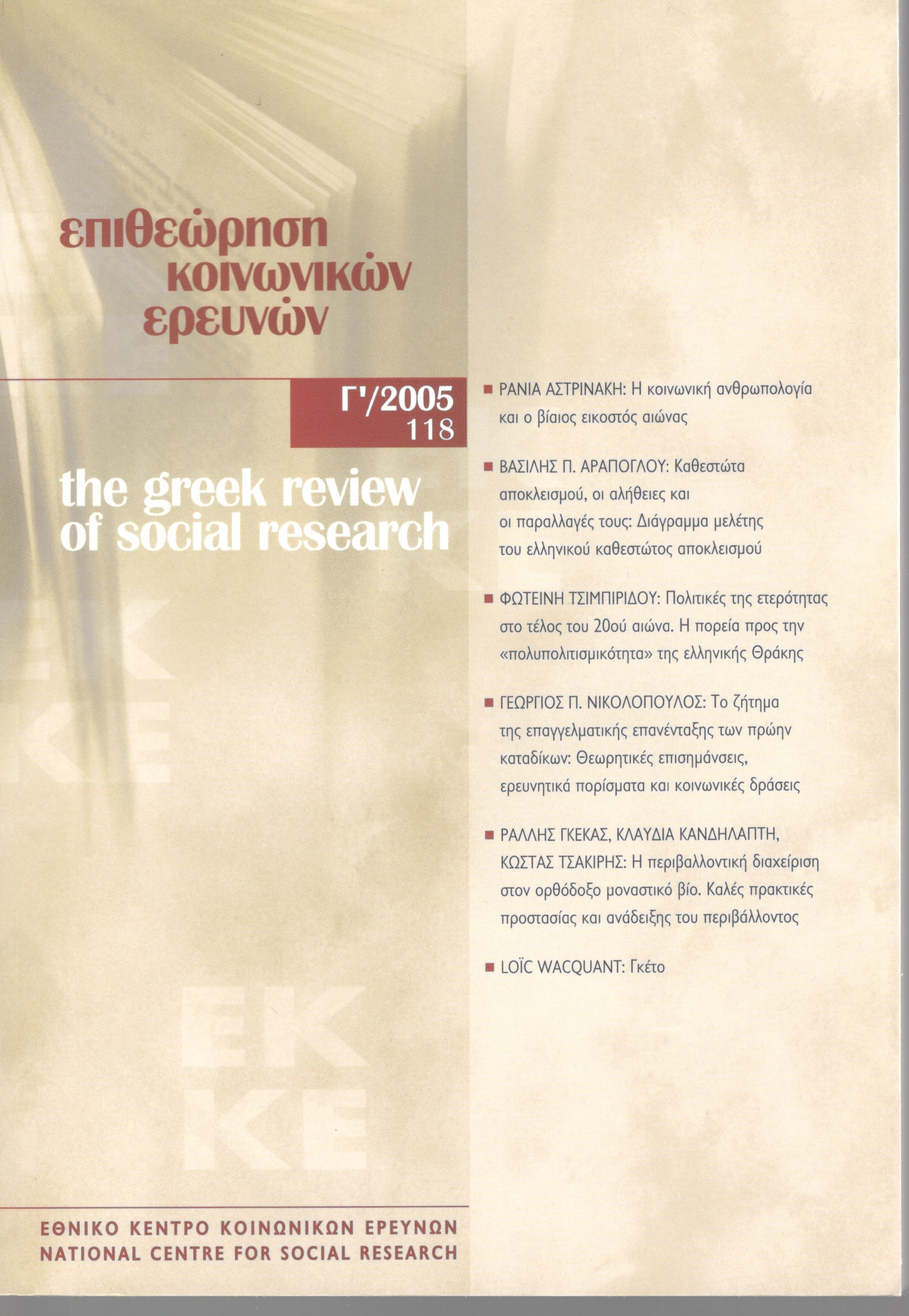Καθεστώτα αποκλεισμού, οι αλήθειες και οι παραλλαγές τους: Διάγραμμα μελέτης του ελληνικού καθεστώτος αποκλεισμού
Abstract
Σκοπός του συγκεκριμένου άρθρου είναι η διαμόρφωση ενός κριτικού θεωρητικού πλαισίου με βάση το οποίο οι πολιτικές αντιμετώπισης επιμέρους ή τοπικών εκδηλώσεων του κοινωνικού αποκλεισμού στην Ελλάδα θα μπορούσαν να ενταχθούν στη διεθνή συζήτηση για τη διαμόρφωση διαφορετικών «καθεστώτων αποκλεισμού» στις ΗΠΑ και την Ευρώπη. Επιχειρείται μια σύντομη επισκόπηση των διαφορετικών τυπολογιών για το κράτος πρόνοιας προκειμένου να αναδειχθούν οι θεωρητικές προϋποθέσεις αλλά και οι εμπειρικές διαστάσεις με βάση τις οποίες θα μπορούσε να διερευνηθεί η υπόθεση για την ύπαρξη διαφορετικών «καθεστώτων αποκλεισμού». Οι μεταβολές στις κύριες οικονομικές, πολιτικές και ιδεολογικές διαστάσεις ενός «καθεστώτος αποκλεισμού» σκιαγραφούνται για την ελληνική περίπτωση.
Article Details
- How to Cite
-
Αράπογλου Β. Π. (2016). Καθεστώτα αποκλεισμού, οι αλήθειες και οι παραλλαγές τους: Διάγραμμα μελέτης του ελληνικού καθεστώτος αποκλεισμού. The Greek Review of Social Research, 118, 31–58. https://doi.org/10.12681/grsr.9515
- Issue
- 2005: 118 Γ΄
- Section
- Articles

This work is licensed under a Creative Commons Attribution-NonCommercial 4.0 International License.
Authors who publish with this journal agree to the following terms:
- Authors retain copyright and grant the journal right of first publication with the work simultaneously licensed under a Creative Commons Attribution Non-Commercial License that allows others to share the work with an acknowledgement of the work's authorship and initial publication in this journal.
- Authors are able to enter into separate, additional contractual arrangements for the non-exclusive distribution of the journal's published version of the work (e.g. post it to an institutional repository or publish it in a book), with an acknowledgement of its initial publication in this journal.
- Authors are permitted and encouraged to post their work online (preferably in institutional repositories or on their website) prior to and during the submission process, as it can lead to productive exchanges, as well as earlier and greater citation of published work (See The Effect of Open Access).



